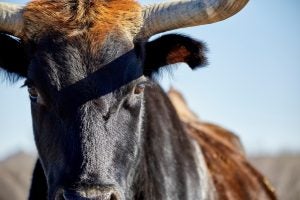The South Carolina Department of Health and Environmental Control confirmed that a cow found in the town of Prosperity has tested positive for rabies. Four people were exposed and have been referred to their healthcare providers.
Eleven cows were also potentially exposed to the rabid cow. The public health veterinarian with DHEC and the state veterinarian with Clemson University Livestock Poultry and Health have been consulted to determine appropriate safety response actions.
The cow was submitted to DHEC’s laboratory for testing on Jan. 31 and was confirmed to have rabies on Feb. 1.
This marks the first recorded case of rabies in an animal in Saluda County this year, adding to six other reported cases statewide. While South Carolina typically records an average of 148 positive cases annually since 2002, the sudden occurrence serves as a reminder of the ongoing rabies risk.

Rabies infections typically occur due to a bite from a rabid animal such as a dog, cat, skunk, or bat. Still, they can also be transmitted when saliva from an infected animal contacts wounds or mucous membranes of healthy animals.
Symptoms in livestock can vary from lack of appetite and fever to decreased swallowing ability. More commonly recognized symptoms may include lethargy, nervousness, aggression, or drooling.
South Carolina law requires all dogs, cats, and ferrets to be vaccinated against rabies and revaccinated frequently to provide continuous protection of the pet using a vaccine approved by DHEC and licensed by the U.S. Department of Agriculture.
Livestock are susceptible to rabies, and all livestock with USDA-approved rabies vaccinations should be vaccinated. Cattle and horses, however, are the most frequently reported infected livestock species. Species for which licensed vaccines are not available (goat and swine) that have frequent contact with humans or are considered valuable should also be vaccinated.
“Keeping your pets and livestock current on their rabies vaccination is a responsibility that comes with owning an animal,” said Terri McCollister, DHEC’s Rabies Program director. “It is one of the easiest and most effective ways you can protect yourself, your family, your pets, and your livestock from this fatal disease. That is an investment worth making to provide yourself some peace of mind.”
If you believe that you, your family members, or your pets have come in contact with this cow or another animal that potentially has rabies, please call DHEC’s Public Health Columbia office at (803) 896-0620.
»Related: Vampire bat invasion: A threat to the U.S. livestock industry?


